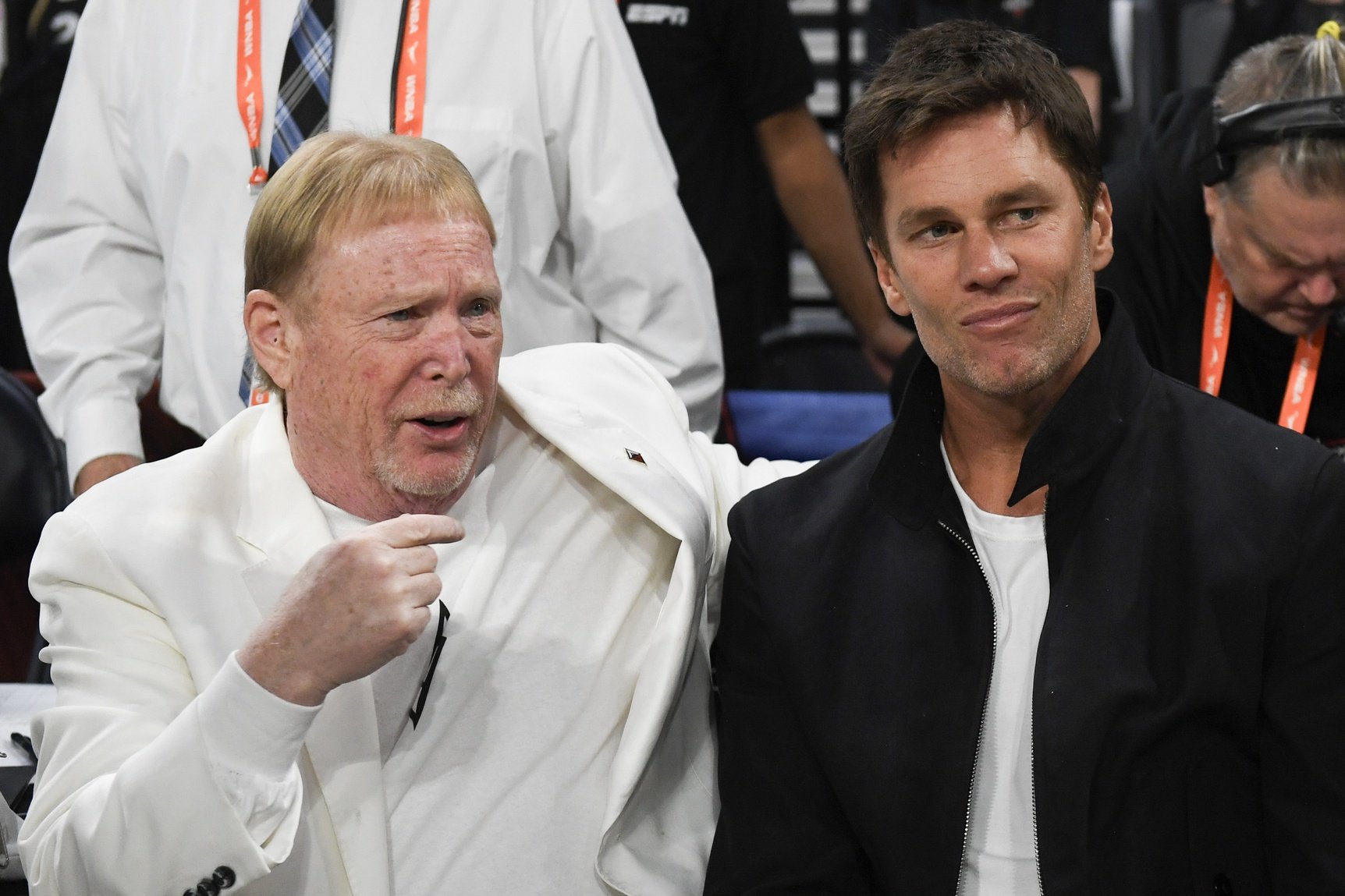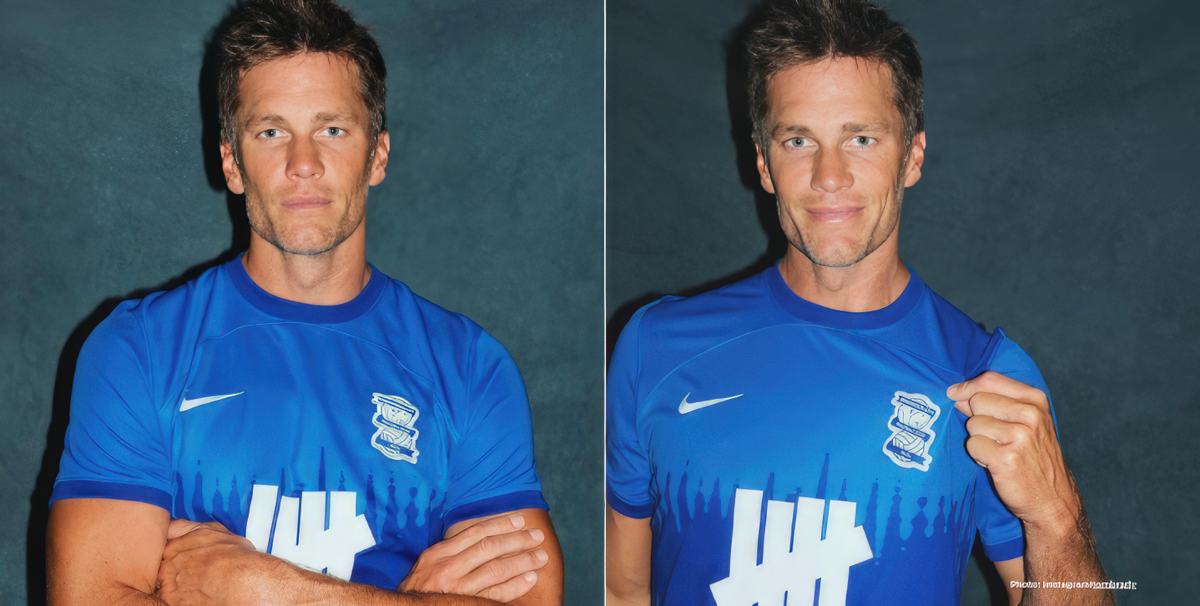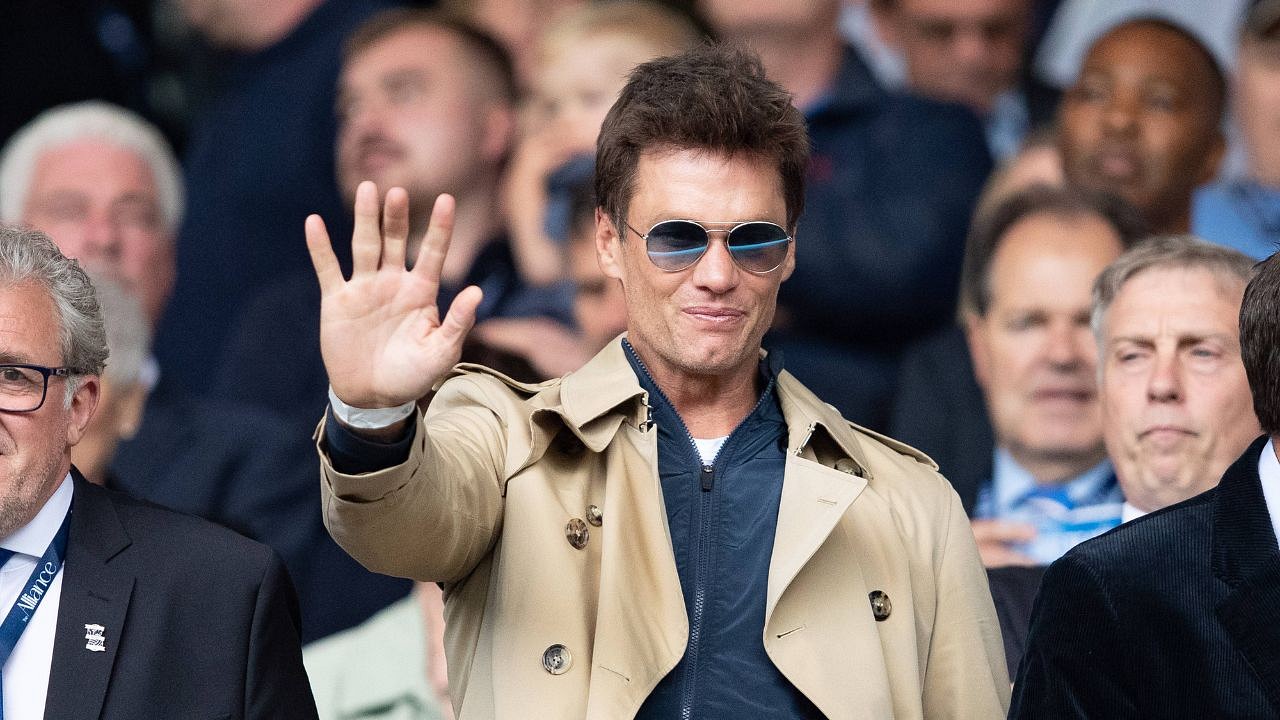What Percentage Of The Raiders Does Tom Brady Own? Exploring His Investment In The Team
Many sports fans and business watchers are curious about Tom Brady's involvement with the Las Vegas Raiders. It is a big question for many who follow football and also those interested in high-profile business dealings. People often wonder just how much of the team, if any, the legendary quarterback truly holds. This kind of investment by a sports icon can really shift things for a team, and it's something people talk about a lot, especially as team valuations keep going up.
The news about Tom Brady possibly joining the Raiders' ownership group has generated quite a buzz, and it's a topic that keeps popping up in conversations. It makes sense, really, as someone with his level of recognition and success stepping into a new role like this is, well, pretty significant. There are a lot of details to consider when a deal like this comes together, and it's not always as simple as it might seem on the surface, you know?
So, we are going to take a closer look at what has been reported and what it means for Tom Brady and the Raiders. We will talk about the different parts of such a big business move, and why knowing the specific percentage is something many people want to figure out. It's a complex topic, and yet, we will break it down for you.
- Alisha Lehmann Nudes A Candid Look At The Misunderstood Phenomenon,html
- Guy Riedel Net Worth,html
- Sam Frank Leaked Nudes The Untold Story Behind The Controversy,html
- Marc Hickox Nude A Candid Look At The Controversy And Beyond,html
- Chloe Grace Moretz Nude Unveiling Facts Myths And The Truth Behind The Headlines,html
Table of Contents
- Tom Brady: A Brief Overview
- The Raiders Investment: What We Know
- Understanding Ownership Stakes in Sports Teams
- The Due Diligence Process for Major Investments
- Financial Aspects of Sports Team Ownership
- League Approval and Its Importance
- The Impact of Celebrity Ownership
- Frequently Asked Questions About Brady and the Raiders
Tom Brady: A Brief Overview
Tom Brady, as many people know, is a name synonymous with football excellence. He spent over two decades playing in the National Football League, winning a lot of championships and setting many records along the way. His career with the New England Patriots, and then a shorter time with the Tampa Bay Buccaneers, really made him a household name across the globe. He is widely considered one of the greatest quarterbacks to ever play the game, and that's a big deal, you know?
After stepping away from playing, many wondered what his next moves would be. For someone with his drive and business sense, it was pretty clear he wouldn't just disappear from the public eye. He has been involved in various ventures, from health and wellness companies to media projects. So, it wasn't a total shock when reports started circulating about his interest in team ownership, especially with a team like the Raiders, which has a very distinct identity and a passionate fan base, you know?
His post-playing career has, in some respects, been as active as his playing days, just in different arenas. He seems to have a knack for finding opportunities that fit his personal brand and also offer a chance for significant influence. This move into team ownership, if fully approved, would be a very important step in that direction, a clear sign of his continued connection to the sport he helped define. It's almost like he is still on the field, just in a different uniform, you know?
- Mariah Carey Nude Pics A Closer Look At The Facts Fiction And Media Sensations,html
- Willow Harper Leak The Untold Story Behind The Controversy,html
- Eiza Gonzalez Nudes Facts Myths And The Real Story Behind The Hype,html
- Zooe Moore Onlyfans Leak The Truth Behind The Controversy,html
- What Did Princess Diana Call Prince Philip,html
Personal Details and Bio Data
| Detail | Information |
|---|---|
| Full Name | Thomas Edward Patrick Brady Jr. |
| Born | August 3, 1977 |
| Birthplace | San Mateo, California, USA |
| College | University of Michigan |
| NFL Draft | 2000, Round 6, Pick 199 |
| Primary Teams | New England Patriots, Tampa Bay Buccaneers |
| Retirement | February 2023 |
| Post-Playing Ventures | TB12, Brady Brand, Autograph, Fox Sports (future), Sports Team Ownership (potential) |
The Raiders Investment: What We Know
Reports surfaced quite some time ago about Tom Brady's intention to acquire a minority ownership stake in the Las Vegas Raiders. This news naturally got a lot of people talking. It's important to remember that these kinds of deals, especially involving sports teams and high-profile figures, often take a while to become official. There are many steps involved, including a lot of checks and, of course, league approval, you know?
The reported percentage that Tom Brady is looking to acquire is not a controlling interest. It's described as a minority stake, which means he would own a small piece of the team, not enough to make all the big decisions. This is pretty common for celebrity investors who want to be involved but do not want to run the day-to-day operations. It allows them to have a say, perhaps, and to be part of the team's future, but without the full weight of responsibility that comes with being a majority owner, you know?
As of late 2023 and into early 2024, the exact percentage has been reported in various places, but it is typically cited as a relatively small fraction. Some reports have suggested it could be somewhere around 10% or less, though the precise figure can shift during negotiations and before finalization. It's not a secret, exactly, but the exact terms of these private deals are not always fully public until everything is signed, sealed, and delivered. The process can be quite drawn out, too it's almost like waiting for a big game to go into overtime, you know?
The deal has been awaiting formal approval from the NFL's ownership committee and then the full slate of team owners. This is a very standard part of the process for any ownership change in the league. It is not just a formality, as the league likes to make sure that new owners meet certain criteria and that the overall structure of ownership remains stable. So, while the news broke a while back, the official green light takes time, which is just how these things work, you know?
It is important to note that the value of sports teams has soared in recent years, making even a small percentage a very significant investment. The Raiders, like many NFL franchises, are worth billions of dollars. So, even a single-digit percentage represents a substantial financial commitment, a lot of money, really. This shows that Tom Brady is not just putting his name on something; he is putting a good amount of his own money into it, too it's almost like a very personal stake, you know?
Understanding Ownership Stakes in Sports Teams
When someone buys a piece of a sports team, they usually get an "ownership percentage." This simply means what portion of the whole team they now possess. It can be a very small part, like one percent, or a much larger part, like a controlling interest, which might be over 50 percent. Most often, when a famous person joins an ownership group, they take on a minority stake, you know?
A minority stake means you own some of the team, but you don't have the final say on all the big decisions. The majority owner, or the group that holds the largest portion, is usually the one who steers the ship. However, even minority owners can have a lot of influence, especially if they are well-known, like Tom Brady. Their presence alone can bring a lot of attention and, perhaps, new ideas to the table, you know?
The concept of "ownership percentage" is also tied to "profit allocation percentage within an LLC," as was mentioned in my text. This means that if the team makes money, the owners get a share of those profits based on how much of the team they own. So, if you own a small percentage, you get a small percentage of the profits. It's a pretty straightforward way of dividing up the financial rewards of owning a successful business, which a sports team certainly is, you know?
These agreements also often include details about how decisions are made, even for minority owners. Sometimes, there are operating agreements that spell out voting rights, how capital contributions work, and how the business will be run. It is not just about the money; it is also about how everyone works together to make the team better. This is a very important part of setting up any business, and sports teams are no different, you know?
For someone like Tom Brady, his investment is likely not just about the financial return, though that is certainly a part of it. It is also about staying connected to the game he loves, having a voice in its future, and perhaps even helping to shape a team's direction. That kind of involvement can be very rewarding, even if you do not own the biggest piece of the pie, you know?
The Due Diligence Process for Major Investments
When someone is thinking about putting a lot of money into a business, like a sports team, there is a very important step called "due diligence." This means doing a lot of careful checking and looking into everything about the deal before you agree to it. It's like checking every part of a car before you buy it, but on a much, much bigger scale. This is a critical step in the process that many people take very seriously, you know?
For a sports team, due diligence involves looking at the team's finances, its contracts, its legal situation, and even its past performance and future plans. An investor wants to understand how their money will be spent, as my text mentioned about commercial real estate. They want to know what they are getting into and what the risks might be. It is about getting a full picture of the health and potential of the business, you know?
This process also involves understanding the overall value of the team and how that value might grow or shrink over time. It is not just about what the team is worth today, but what it might be worth in the future. This requires looking at market trends, fan engagement, media rights, and other things that make a sports team valuable. It's a very detailed kind of investigation, really.
For someone like Tom Brady, who has a lot of experience with high-stakes situations, this due diligence would be very thorough. He would want to know everything about the Raiders' business operations, their plans for the future, and how his investment fits into all of that. It is about making a smart decision with a very large sum of money, and nobody wants to make a mistake when that much is on the line, you know?
This careful checking helps to make sure that the investment makes sense from a financial point of view and also from a strategic one. It is about aligning goals and making sure that everyone involved is on the same page. This step, while sometimes long and involved, helps to avoid problems later on and ensures a smoother partnership, which is something everyone wants, you know?
Financial Aspects of Sports Team Ownership
Owning a piece of a professional sports team is a very big financial commitment, and it involves a lot more than just the purchase price. There are many costs that come with it, much like when someone buys a large property. My text asks about what percentage of the purchase price is typical to pay in closing costs, and what other closing costs there are, which applies to these kinds of deals too, in a way, you know?
Beyond the actual price of the ownership stake, there are legal fees, accounting fees, and other administrative costs that add up. These are often called "closing costs" in real estate, and similar fees exist for large business acquisitions. These costs can be a noticeable percentage of the total amount of money changing hands, so they are certainly something to consider. It's not just the sticker price; there are always extra bits and pieces that need to be paid for, you know?
Then there is the concept of return on investment, or ROI, which my text also talks about for rental properties. For a sports team, ROI can come from many sources: increased team value, profits from ticket sales, merchandise, media rights, and even potential stadium revenues. Investors want to see a good return on their money, and they look at how these different income streams can grow over time. It is about making sure the money put in comes back with more, you know?
Understanding how money will be spent is also a very big part of this. Investors want to see a clear plan for the team's finances, including how they plan to grow revenue and manage expenses. This ties back to the due diligence process, where every dollar is accounted for. It's about being very clear about the financial health of the team and its future prospects, you know?
Furthermore, the ability to make such a large investment often depends on an individual's "investable net worth," a concept mentioned in my text. This is a more realistic measure of someone's wealth that can actually be put into investments, rather than just their total assets. For someone like Tom Brady, his considerable investable net worth allows him to consider such significant stakes, which is a big factor in these high-level deals, you know?
The structure of the investment can also be complex. It might involve an LLC, and understanding the "ownership percentage versus profit allocation percentage within an LLC" is important, as my text pointed out. Sometimes, the profit sharing is not a direct one-to-one match with the ownership percentage, depending on how the operating agreement is set up. This can be very detailed, and it is something that lawyers and financial experts spend a lot of time figuring out to make sure everyone is treated fairly, you know?
League Approval and Its Importance
Any time there is a change in ownership for an NFL team, the league itself has to give its blessing. This is not just a quick nod; it is a very formal process that involves a lot of scrutiny. The NFL wants to make sure that new owners are financially stable, have a good reputation, and will be a positive addition to the league. It's almost like a very strict interview process, you know?
The league's ownership committee first reviews the proposed deal in great detail. They look at the financial aspects, the background of the potential new owner, and how the deal fits within the league's rules and guidelines. This is a very important step, and they take their time with it. They want to be sure that everything is above board and that the new owner will be a good partner for the other teams, you know?
After the committee reviews it, the proposed ownership change then goes to a vote by all the NFL team owners. A certain number of owners, usually three-quarters of them, have to approve the deal for it to go through. This means that a lot of people have to agree that the new owner is a good fit. It is



Detail Author:
- Name : Pearline Mosciski
- Username : qabernathy
- Email : jared.mraz@gmail.com
- Birthdate : 1970-10-15
- Address : 258 Mraz Pine Wildermanton, SD 78013-8204
- Phone : +1.618.295.4839
- Company : Quitzon-Murray
- Job : Drilling and Boring Machine Tool Setter
- Bio : Qui enim quaerat maiores maiores recusandae. Quod excepturi molestiae itaque a facere sit. Veritatis placeat doloremque aut dignissimos.
Socials
linkedin:
- url : https://linkedin.com/in/fausto_dev
- username : fausto_dev
- bio : Et laudantium dolor qui nobis et.
- followers : 4324
- following : 1047
facebook:
- url : https://facebook.com/feeneyf
- username : feeneyf
- bio : Cum hic sapiente voluptatum ex quam. Quia ab aut deserunt quis qui ut.
- followers : 3064
- following : 1319
tiktok:
- url : https://tiktok.com/@fausto_feeney
- username : fausto_feeney
- bio : Aliquam consequatur sed odio qui aut aut id. Non quia et optio.
- followers : 6193
- following : 2817